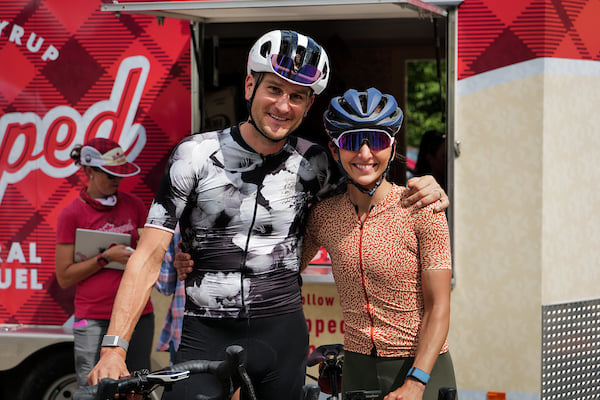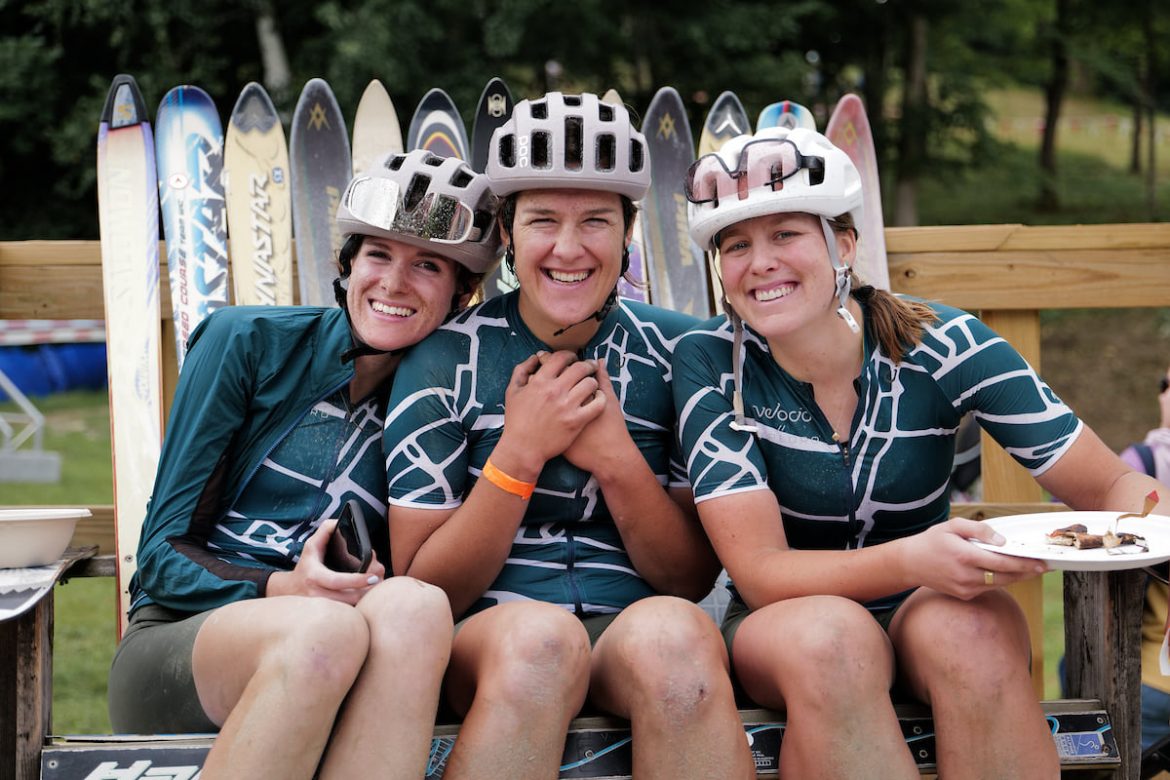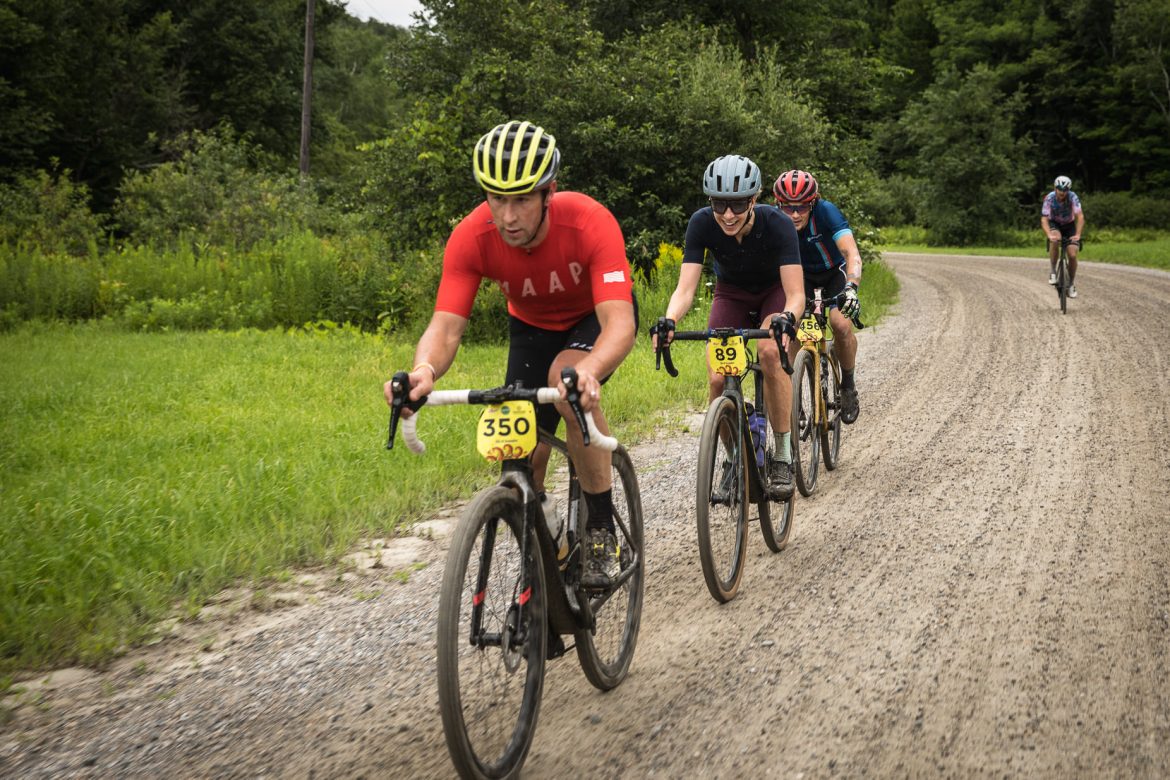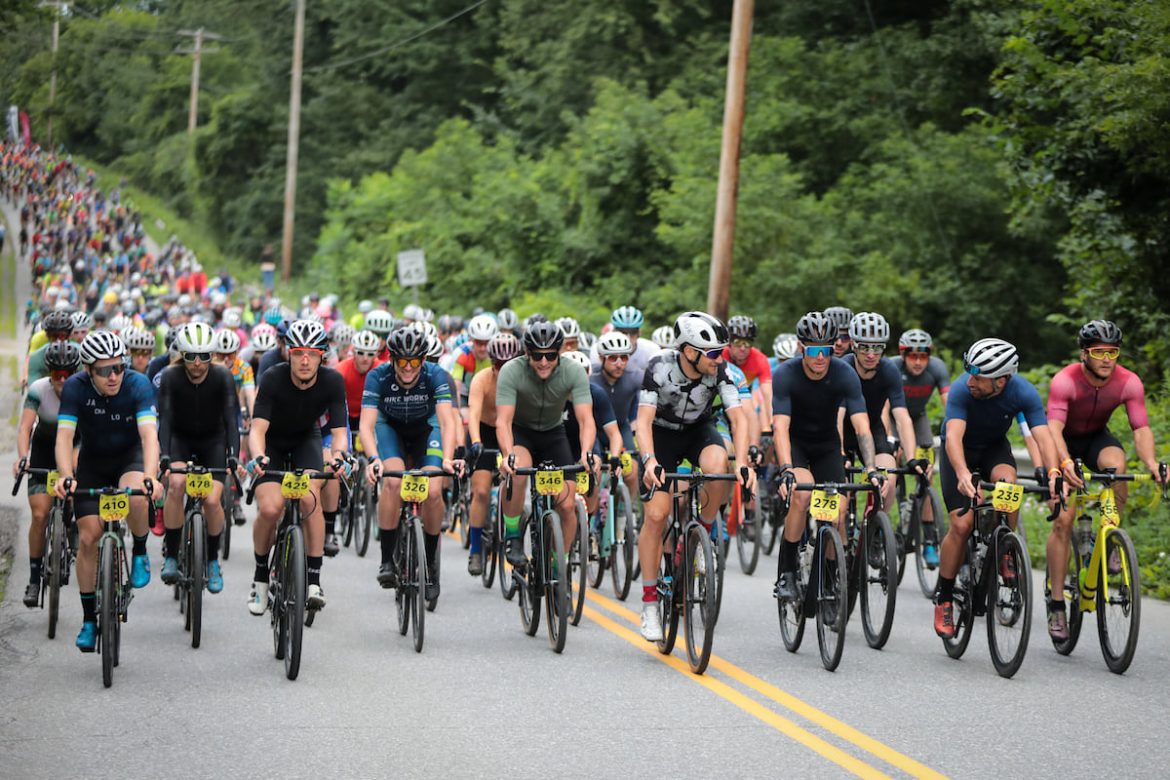Vermont, with its rugged mountains, clear lakes, and stunning fall foliage, has always attracted out-of-state visitors. A quick flight or meandering drive away from several major East Coast cities, the Green Mountain State welcomes — and relies on — tourists to keep it afloat. But enough out-of-staters have answered Vermont’s call that those who put roots down here generations ago sometimes make offhand remarks about who can really say they’re from here. According to generally accepted rules, if your family has lived here for at least a handful of generations, you’re allowed to call yourself a Vermonter. If they haven’t, you’re a flatlander. (Full disclosure: that’s me.) The label might be softened by a friendly wink or elbow dig when it’s thrown around, but the meaning is clear: We were here first, and our roots run deeper than yours.

So when Laura and Ted King moved to Richmond, Vermont, in 2018 and launched a new gravel race called “Rooted Vermont,” they had a specific goal in mind: to create an event where everyone felt welcomed, no matter how long they’d been riding bikes, or where they were originally from. Because the Kings knew they’d been lucky: They’d received a warm welcome from the local cycling community when they moved here, and the name “Rooted” was, in part, a heartfelt hat-tip to how quickly they’d felt at home in Vermont.
But it’s one thing to get a warm welcome from the cycling community when you already belong to the cycling community. It’s another thing entirely if you’re not quite sure you have the right bike, the right skills, or simply the extra courage it takes to register for an official “race.” Recognizing that, the Kings and fellow local bike racer Kristin Motley — who, with Laura, took the helm as co-race director of Rooted — set about finding all of the ways they could break down the barriers between “us” and “them.” And they wanted to use Rooted to do it.
#MulletProtocol to set the tone
That theme of breaking down barriers first launched in the form of a cheeky logo and hashtag — #mulletprotocol — referencing the kind of “business at the front, party at the back” atmosphere Motley and the Kings hoped to promote. Having a #mulletprotocol theme would, they hoped, allow top racers to duke it out in front while the rest of the field soaked up the fun, beauty, and convivial atmosphere found further back in the field. But for Motley and King, hosting a race that promoted “an atmosphere of fun, inclusivity, and community” wasn’t enough. They wanted to get more people — and particularly, more people identifying as women — on bikes. And doing that meant starting months before the actual race, with a women’s clinic.
Breaking down the skills and barriers
Two months before the inaugural Rooted Vermont race in 2019, Motley and King hosted a free women’s gravel clinic with Network for Advancing Athletes, geared at equipping women with the skills, resources, and most of all, confidence to line up at an event like Rooted. Fifty women showed up to the first clinic. A 50/50 mix of locals and out-of-state women, they got together to swap stories and learn skills like descending, cornering, bunny-hopping, tackling Class IV roads, and riding in pace lines. This year (after a COVID break in 2020), the women’s clinic hosted 100 riders. More than 240 applied, proving that women were hungry to build their skill sets in a safe, affirmative environment, whether they wanted to race Rooted or another event — or not.
“We realized that a lot of women were either riding alone, or just with their partners, and that maybe by hosting a women’s clinic, we could help them find other women to ride with to make their experience on a bike even better,” King said.
Because the weekend clinic covered all of the technical know-how required to show up on the start line of any race, it also focused on sparking connections and providing women with the tools to start their own gravel communities back at home.
“We don’t actually care if the women who came to the clinic register for Rooted,” King says. “We care about getting more women on bikes.”
And, King notes, getting more women on bikes means doing way more than just opening up more entries for women at races and hoping they sign up. “Sometimes that can feel like a PR stunt that isn’t really growing women’s cycling,” she says. “When we think about the most authentic way to get more women into the sport, it means putting in the work to help people feel like they belong there in the first place. At the end of the day, maybe the event we put on won’t appeal to everyone, but if women come away feeling like they belong to a new community, that’s fulfilling to us.”
The same rules apply for the sponsors, too. “We aim to partner with brands who are inclusive to all riders, no matter how fast they are — but it’s also about simply being nice to each other,” Motley says. “We talk about this a lot with the brands we work with — that we’re here to make friends. So be nice! Sit with people. Make eye contact. Say hello. Start a conversation. This is about so much more than a start line.”
“That’s also true for the men’s field,” King adds. “Ted has had some conversations with fellow pros about what’s OK and what’s not OK in the spirit of gravel. So even at the business end of things we’re trying to instill a code of conduct that hopefully sets us apart from other races.”
Cowbell for everyone
When race day rolled around on August 1, a third of the starters were women, among them, current and former national champions, Olympians, and top-ranking pros from every discipline of cycling. But equally well represented were the people partying at the back, who got just as much applause and cowbell (and maybe more) than Emma Langley or Ian Boswell, who crossed the line first. And just as in 2019, when the last rider was ushered through the finish chute with cheering, fanfare, and plenty of high-fives, the 2021 crowd offered the final racer a similarly festive finish.
And that’s great. But, as Motley notes — and as Motley and the Kings’ close attention to all of the community-building events not connected with a starting line, official time, or podium place attest — Rooted Vermont isn’t just about the race. And while women aren’t the only ones who might lack the confidence to register for something like Rooted, the focus on building skills, comfort levels, and confidence is a good one, and one that applies to anyone who feels like an outsider.
“Whether the women who attended the clinic crossed in the lead group or didn’t sign up at all, I hope they come away feeling like they’re part of something bigger than themselves, and that once they’re part of the community, they can show up to any gravel race and know someone or have new friends to ride with,” Motley says.
Proof of concept: the groups of women who met at a Rooted event sometime in the past two years getting back together again to tackle last week’s challenging — and exceedingly muddy — Vermont Overland race. They rode, they cheered, they ate creemees and drank beers, they took pictures together — but most of all, they were there, putting down roots of their own, and reaching out to bring others up with them.







































1 Comments
Nov 19, 2021